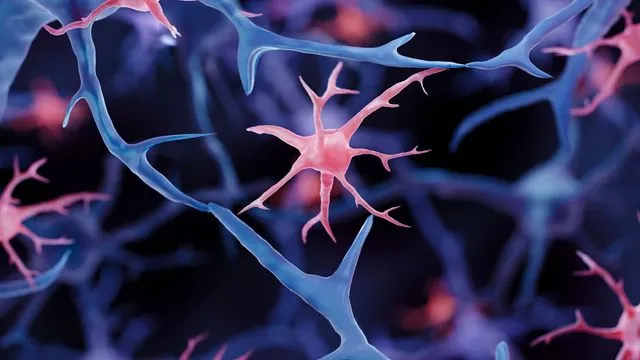
Breakthrough Discovery Links Cell Defect to Alzheimer’s Development
2025-09-11
Author: Wei Ling
Major Discovery in Alzheimer’s Research
In a groundbreaking study from Aarhus University, researchers have uncovered a crucial cellular defect that may play a pivotal role in the onset of Alzheimer’s disease. This revelation shines a new light on the genetic factors contributing to one of the most challenging neurodegenerative disorders.
The Role of the SORL1 Gene
Published in the journal Alzheimer's & Dementia, the research focuses on the SORL1 gene, which has been linked to inherited forms of Alzheimer’s. This gene is responsible for producing the SORLA protein, essential for guiding proteins to the correct locations within brain cells.
What Are Exosomes and Why Do They Matter?
Exosomes are tiny extracellular vesicles that facilitate cellular communication by transporting proteins, lipids, and genetic material between cells. Their functionality is critical for various processes, including immune responses and waste removal. The study found that mutations in the SORL1 gene significantly hinder the production and effectiveness of these exosomes.
Staggering Impacts of the Mutation
The data revealed that brain cells harboring the SORL1 mutation produced 30% fewer exosomes. Furthermore, the exosomes generated were 50% less effective in stimulating the growth and maturation of surrounding cells. Study author Kristian Juul-Madsen expressed concern over how such defects could escalate the risk of Alzheimer’s disease.
Exosomes: The Brain’s Unsung Heroes
Juul-Madsen explained, "Exosomes are essential for communicating and activating surrounding cells, and we have now pinpointed a defect in both their quantity and quality in cells predisposed to Alzheimer’s." The research emphasizes how vital these vesicles—especially those from the brain's immune cells—are in safeguarding brain health.
Hope for Future Treatments?
Although the findings were derived from induced pluripotent stem cell models, they add weight to a growing body of evidence that altered exosome biology is interlinked with Alzheimer’s disease. Juul-Madsen highlighted the possibilities this opens for future therapies: enhancing SORLA function, or targeting other receptors to boost exosome production could lead to innovative treatments.
Alarming Alzheimer’s Statistics
Alzheimer’s disease remains the most common form of age-related dementia in Denmark, currently affecting around 55,000 individuals. While existing treatments offer limited relief from symptoms, the complex nature of the disease has hindered the quest for a definitive cure.
A Call to Action
This research is not merely an academic exercise; it holds the potential to revolutionize Alzheimer’s treatment approaches. The results could guide the development of new strategies to combat this devastating disease, making it an urgent focus for scientists and medical professionals alike.



 Brasil (PT)
Brasil (PT)
 Canada (EN)
Canada (EN)
 Chile (ES)
Chile (ES)
 Česko (CS)
Česko (CS)
 대한민국 (KO)
대한민국 (KO)
 España (ES)
España (ES)
 France (FR)
France (FR)
 Hong Kong (EN)
Hong Kong (EN)
 Italia (IT)
Italia (IT)
 日本 (JA)
日本 (JA)
 Magyarország (HU)
Magyarország (HU)
 Norge (NO)
Norge (NO)
 Polska (PL)
Polska (PL)
 Schweiz (DE)
Schweiz (DE)
 Singapore (EN)
Singapore (EN)
 Sverige (SV)
Sverige (SV)
 Suomi (FI)
Suomi (FI)
 Türkiye (TR)
Türkiye (TR)
 الإمارات العربية المتحدة (AR)
الإمارات العربية المتحدة (AR)